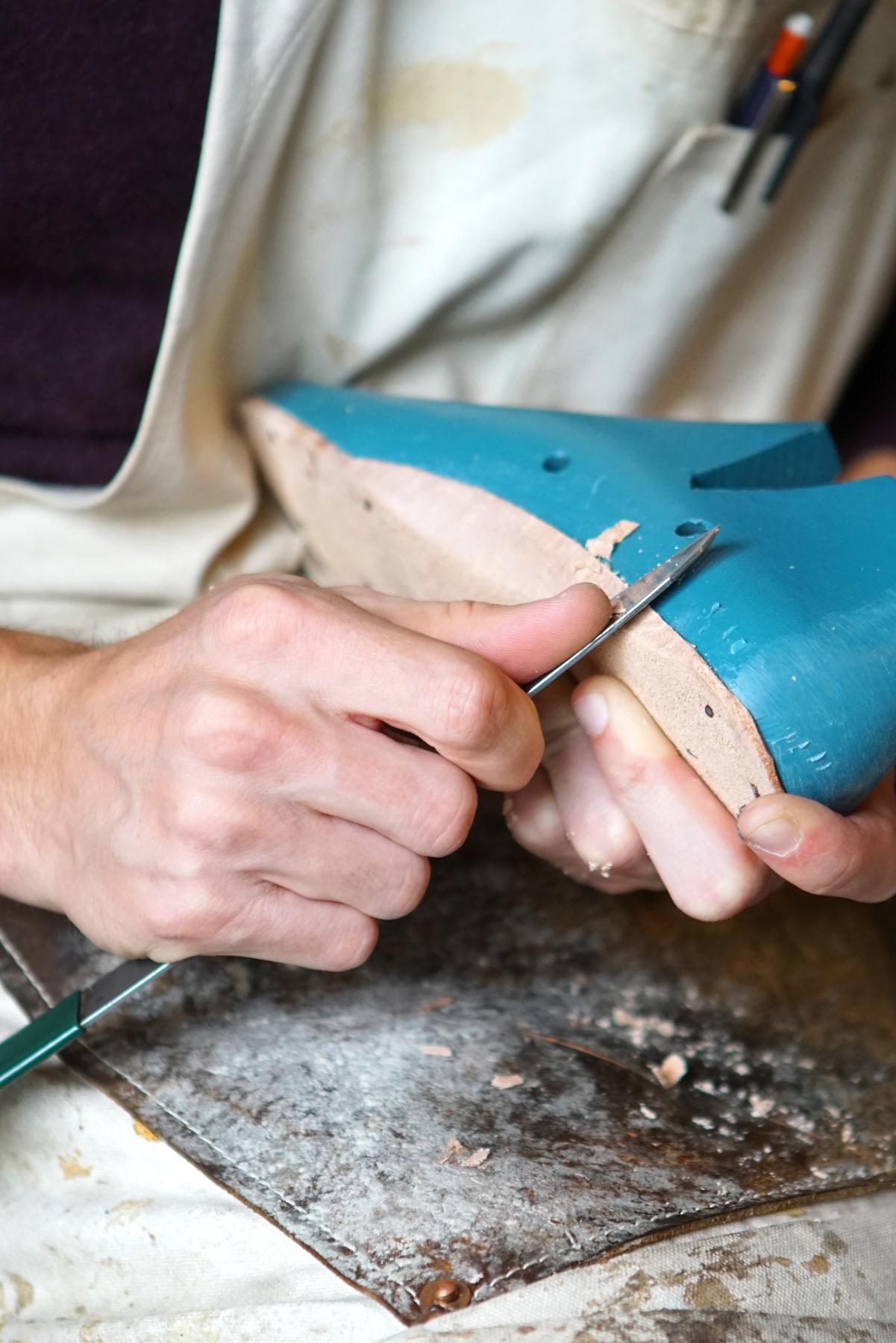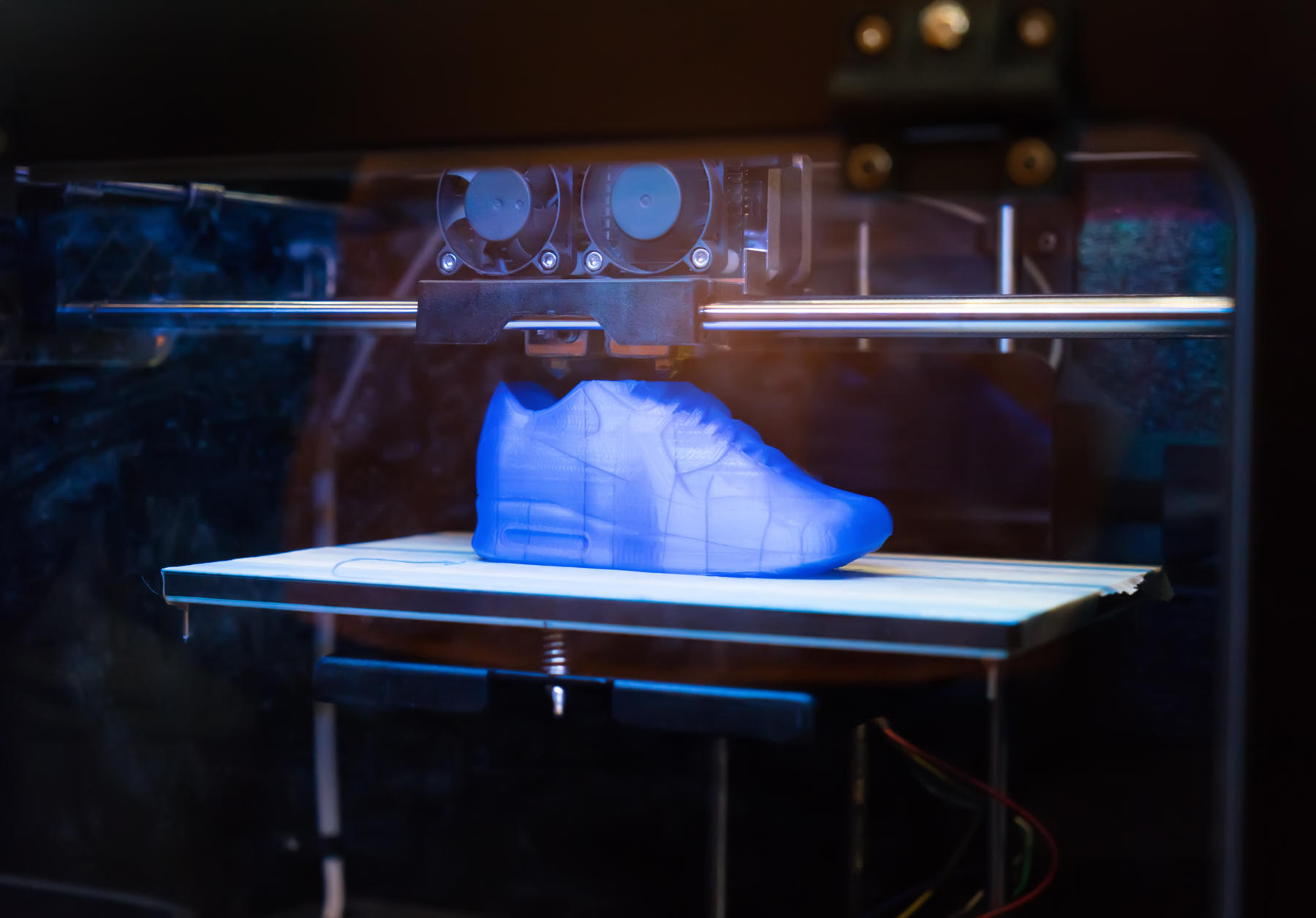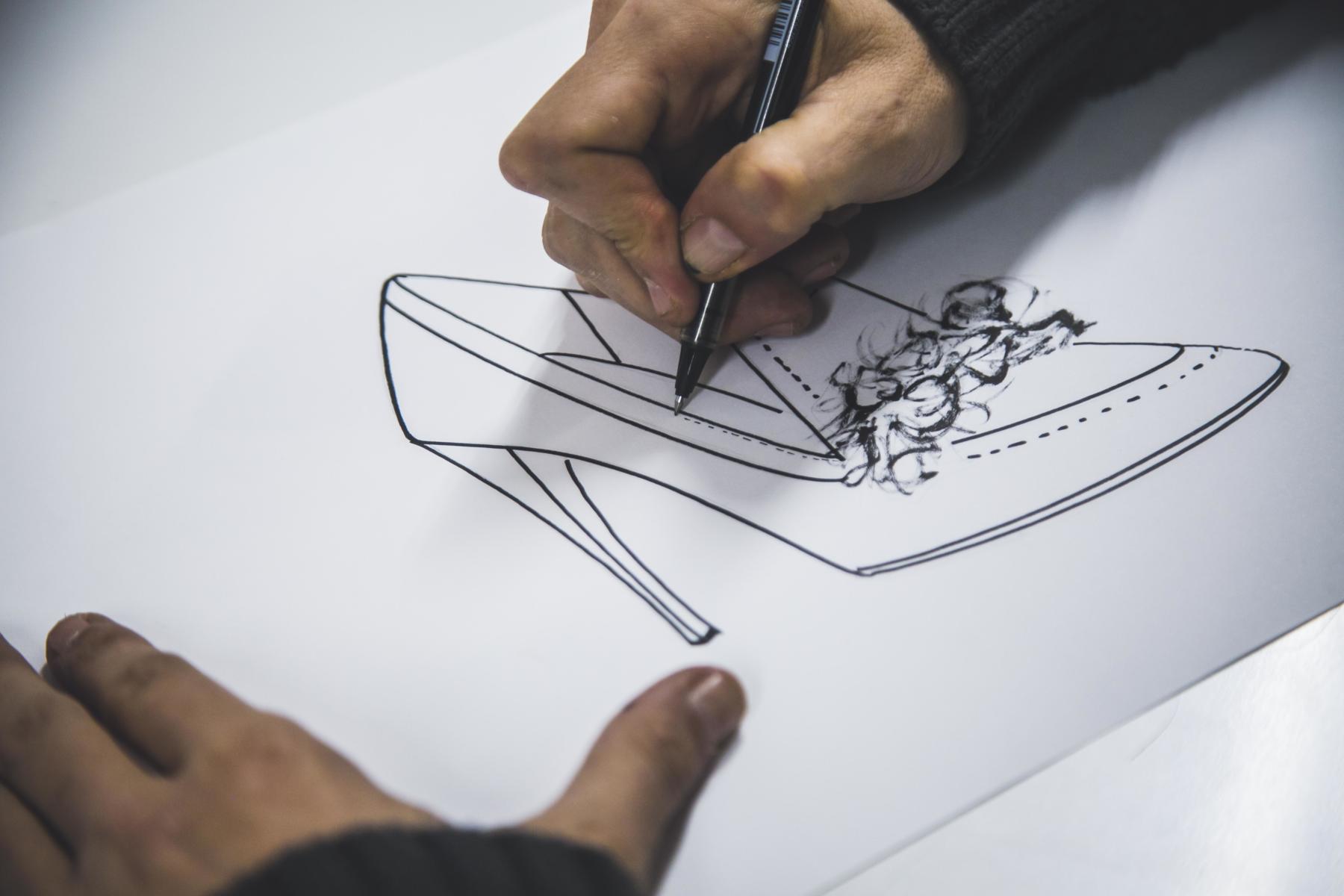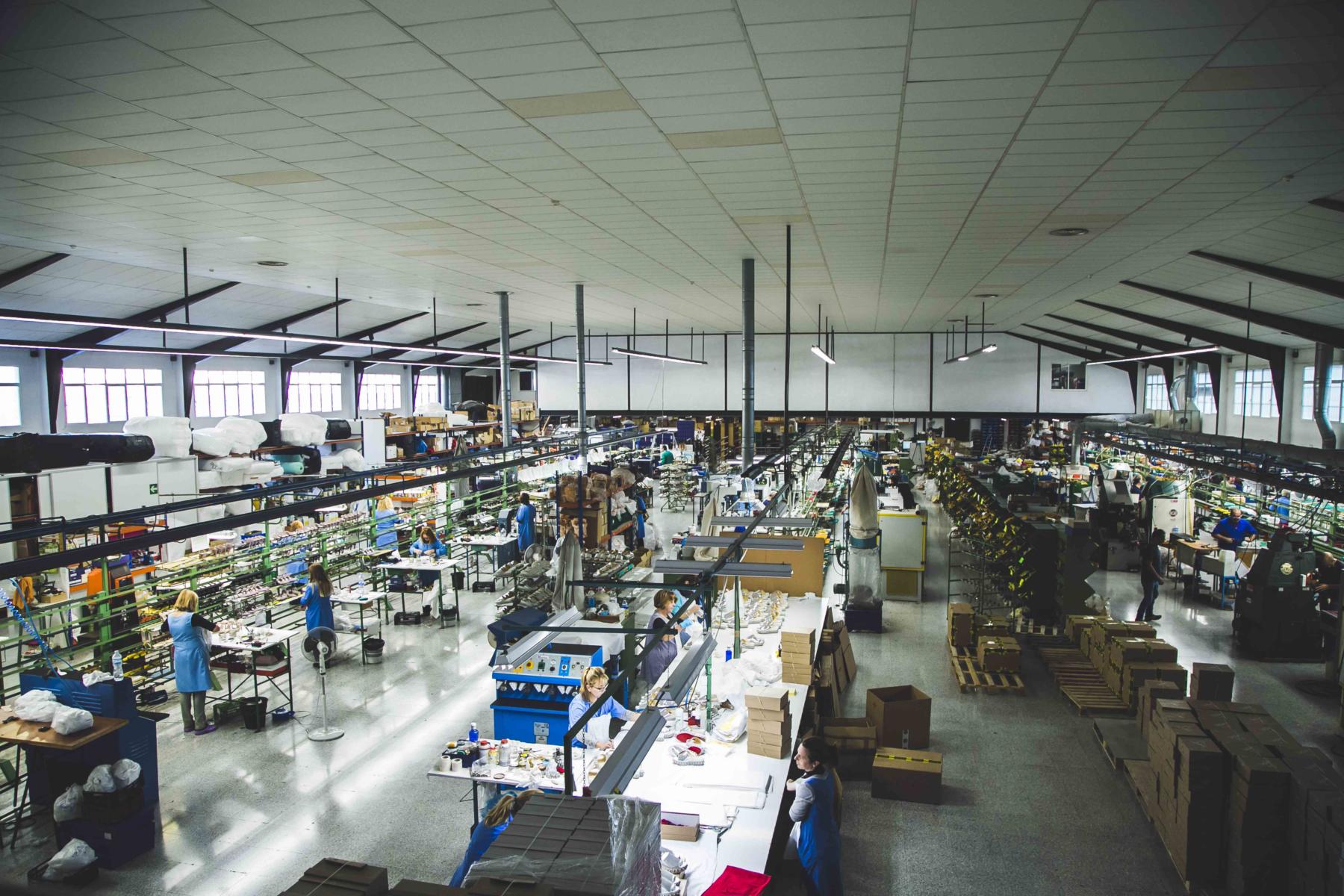Policies







1/6
Education Policy
Education and training are crucial to maintain and strengthen the competitiveness of European footwear companies because workers represent the main asset of the industry. The process of creating a shoe is complex and requires artistic and technical skills as well as specific know-how in order to combine craftsmanship with the opportunities brought by new technologies and digitalisation. A quality shoe undergoes numerous stages of production before it is completed. The exact number of operations involved can vary drastically but often go beyond 200, depending on the product, the selected production method and the tools used. In this relation, the process of shoe creation has changed over the years and alongside the master craftsman, new technologies and innovative processes support the manufacturing process.
It is well-recognised that a successful future of the European industry can only be possible with a skilled and motivated workforce. The damage caused by the COVID-19 pandemic to the TCLF industries has reinforced this need, and the survey of TCLF companies conducted by CEC, EURATEX and COTANCE in February 2021 highlighted the crucial importance of skills for EU TCLF companies among their priorities: close to 85% of respondents recognise that skills will be important or very important in the next five years.
View more

2/6
Environmental Policy
Climate change is a reality, and we are constantly being reminded of the increasing natural catastrophes happening around us. Policy-makers, industry and citizens are progressively understanding the immediate dangers it represents, and wish to react and to make a difference in improving the sustainability of the planet and the use of natural resources.
The EU Green Deal aims at carbon neutrality by 2050. Almost two years after its publication, consumers show more interest than ever in the conditions and place in which their goods are manufactured, especially as a reflection of satisfactory environmental and social standards.
Measures stipulated in the Green Deal include i.a. setting minimum requirements to prevent environmentally harmful products from being placed on the EU market; introducing an electronic product passport with information on composition, origin, repair and dismantling possibilities; new legislation, including targets and measures for tackling over-packaging and waste generation; an EU model for separate waste collection.
The request for information on the product’s origin, environmental and social standards trend has been confirmed and accelerated by the long-lasting Covid-19 pandemic. In this context and considering the upcoming proposal for an EU Directive on Sustainable Product Policy Initiative Policy, the CEC advocates for EU rules setting requirements for a mandatory origin marking scheme for consumer goods placed on the EU market to be displayed in the upcoming electronic product passport. Such origin indication would be a complementary tool to a traceability system and it will provide trustworthy information along supply chains on the environmental, social and quality standards of production, while further boosting the demand for sustainable products and ensuring free and fair trade.
View more
3/6
Industrial Policy
The European footwear industry has a long tradition in the production and retail of innovative, creative and high-quality products, developed in accordance with consumer needs and demands. While being one of the most handcrafted industries in Europe, it has learned to take advantage of the advanced technologies to develop cutting-edge products.
An EU Industrial policy can play a relevant role in building a resilient EU footwear industry. The EU Industrial Strategy was published shortly before the COVID-19 pandemic began and it did not envisage the current challenges. Therefore, the CEC advocated in various fora for a revised EU industrial strategy focused on EU economic recovery and on ensuring a serious level of self-sufficiency and less dependency on products and raw materials from distant supply sources.
View more
4/6
Intellectual Property Rights Policy
The need for IPR protection and enforcement is crucial for the footwear industry in order to preserve the European quality and tradition in footwear manufacturing and to promote sustainability and free and fair trade. Global markets bring challenges and threats to intellectual property rights for the European footwear industry.
According to EUIPO 2020 Status report on IPR infringement, footwear is the 3rd most affected industry by counterfeit imports into the EU, after toys, games and watches. The counterfeit goods most commonly purchased by young people during 2016-2019 were clothing, footwear and small electronic items. Consequently, CEC’s priorities also include IPR enforcement and the fight against counterfeit products.
View more
5/6
Social Policy
Social policy and social dialogue play an important role in supporting and transforming the industries by addressing the impacts of digitalisation, globalisation, shifting employment patterns and upskilling people working in the TCLF sectors. In view of a positive recovery from COVID-19 and of building stronger and more resilient TCLF industries, social dialogue comes as an essential prerequisite and support to address the challenges and to take advantage of new opportunities while working sustainably.
CEC also participates at the international level with other social partners, brands and TCLF stakeholders around the world in initiatives such as the OECD Roundtable on Due Diligence in the Garment and Footwear Supply Chain. This yearly meeting gathers business, government, civil society and trade union representatives to discuss the application of due diligence in the garment and footwear supply chain and to consult the implementation of the OECD 2018 Due Diligence Guidance in the Garment and Footwear Supply Chain. Furthermore, considering the great number of SMEs and their importance in the garment and footwear sector, this Introductory Paper on SMEs and Responsible Business Conduct considers the persisting challenges they face in implementing due diligence in their supply chains as well as the specific opportunities linked to their circumstances.
View more
6/6
Trade Policy
International trade is vital for EU footwear business expansion and economic growth. The CEC is constantly advocating for a system that relies on open and rules-based trade where global partners operate on a level playing field. The CEC agrees that trade policy must play its full role in the recovery from the COVID-19 pandemic and in the green and digital transformations of the economy to build a more resilient Europe in the world.
The CEC underlines that building a stronger EU trade policy based on the “Open Strategic Autonomy” model will require essential tools to maintain the openness of EU companies and to build up their resilience. Such tools will have to strengthen EU’s ability to achieve its own environmental and social goals, while continuing to collaborate with worldwide partners to provide solutions to global challenges.
From 2009 to 2019, EU footwear exports to non-EU countries increased by 51% in quantity and 147% in value despite of the still unfortunate trade barriers in strategic markets for the industry. Such results respond to the recognition of high-value products by consumers around the world.
Following the COVID-19 impact on mobility and consumption, there is an urgent need to ensure that EU footwear companies receive the necessary financial support that can endorse their international trade activity and contribute to their recovery from the COVID-19 crisis.
View more

